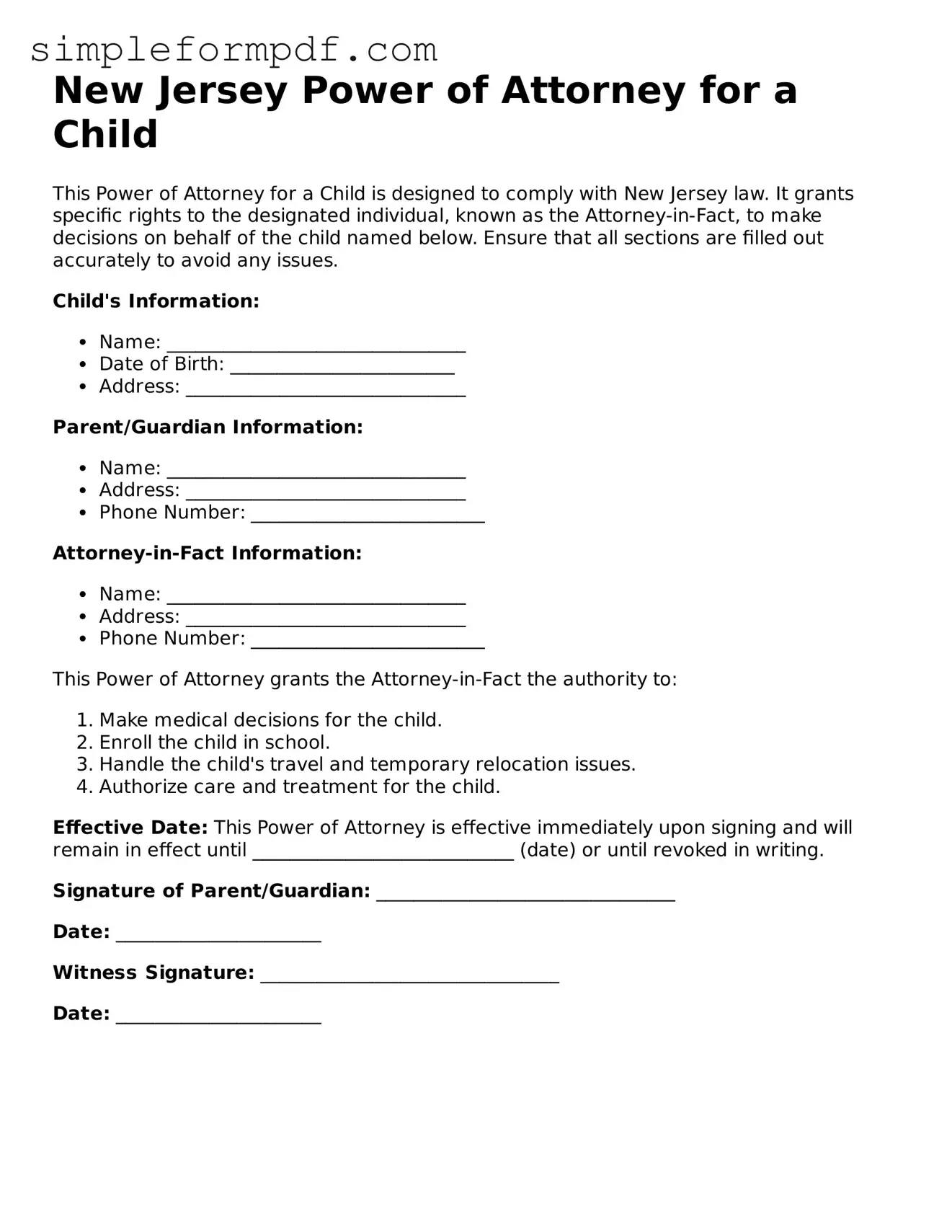Free Power of Attorney for a Child Form for the State of New Jersey
The New Jersey Power of Attorney for a Child form allows a parent or guardian to designate another adult to make decisions on behalf of a minor child. This legal document is essential for ensuring that a trusted individual can act in the child's best interests when the parent or guardian is unavailable. Understanding the nuances of this form is crucial for effective planning and care.
To get started on filling out the form, click the button below.
Launch Editor

Free Power of Attorney for a Child Form for the State of New Jersey
Launch Editor
Need instant form completion?
Finish Power of Attorney for a Child online in just a few minutes.
Launch Editor
or
Download PDF
